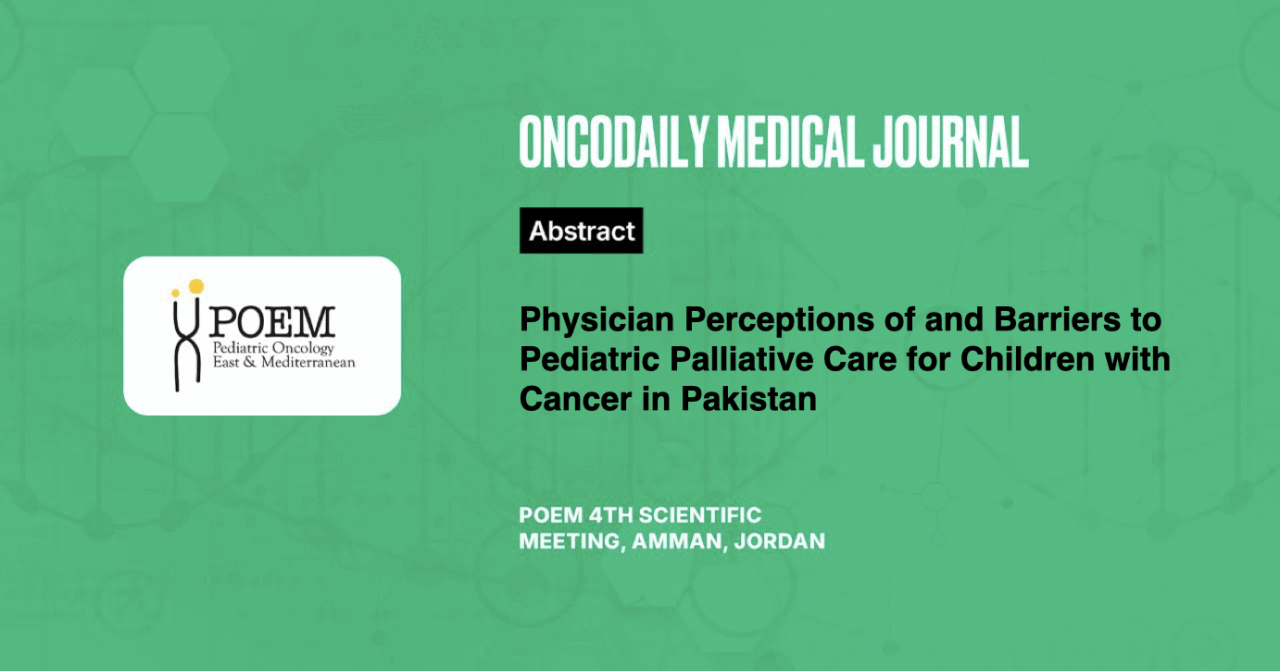Physician Perceptions of and Barriers to Pediatric Palliative Care for Children with Cancer in Pakistan
Abstract
Introduction: In Pakistan, pediatric cancer survival is around 50%, and early integration of pediatric palliative care (PPC) is crucial for improving quality of life. We aimed to understand physician perceptions of palliative care and perceived barriers to PPC integration in Pakistan.
Methodology: The Assessing Doctors’ Attitudes of Palliative Treatment (ADAPT) survey was modified for use in Pakistan. The survey was open from May 2022 to August 2022 and distributed to physicians of all specialties from participating institutions who treat children with cancer. Statistical analysis was complemented by qualitative analysis of open-ended responses.
Results: A total of 106 respondents participated. Among them, 38.7% had access to PPC experts, and 14.2% had previous palliative care training. Respondents reported feeling comfortable addressing physical (56.6%), emotional (55.6%), and spiritual needs (45.3%) of patients in PPC, as well as grief and bereavement needs (51.0%). However, 52.0% felt burdened by their inability to control end-of-life suffering in children. Although 43.4% felt palliative care should be involved from diagnosis, only 16.0% stated this occurred in their setting. Key barriers included lack of national health care policies and advocacy efforts on PPC (94.0%), lack of trained professionals (91.8%), limited access to palliative care specialists or services (88.0%), limited physician knowledge on the role of palliative care (88.0%), lack of home-based services (86.7%) and limited access to opioids (80.6%).
Conclusion: In Pakistan, barriers to pediatric palliative care (PPC) include a lack of training, limited knowledge, and insufficient services. The absence of a national health policy and inadequate advocacy are major challenges for caring for children with cancer. While half of physicians report confidence in providing PPC, most lack confidence in end-of-life care. Capacity-building, improving access to PPC, enhancing home-based care, and ensuring opioid availability can reduce suffering and improve quality of life for patients and families.





